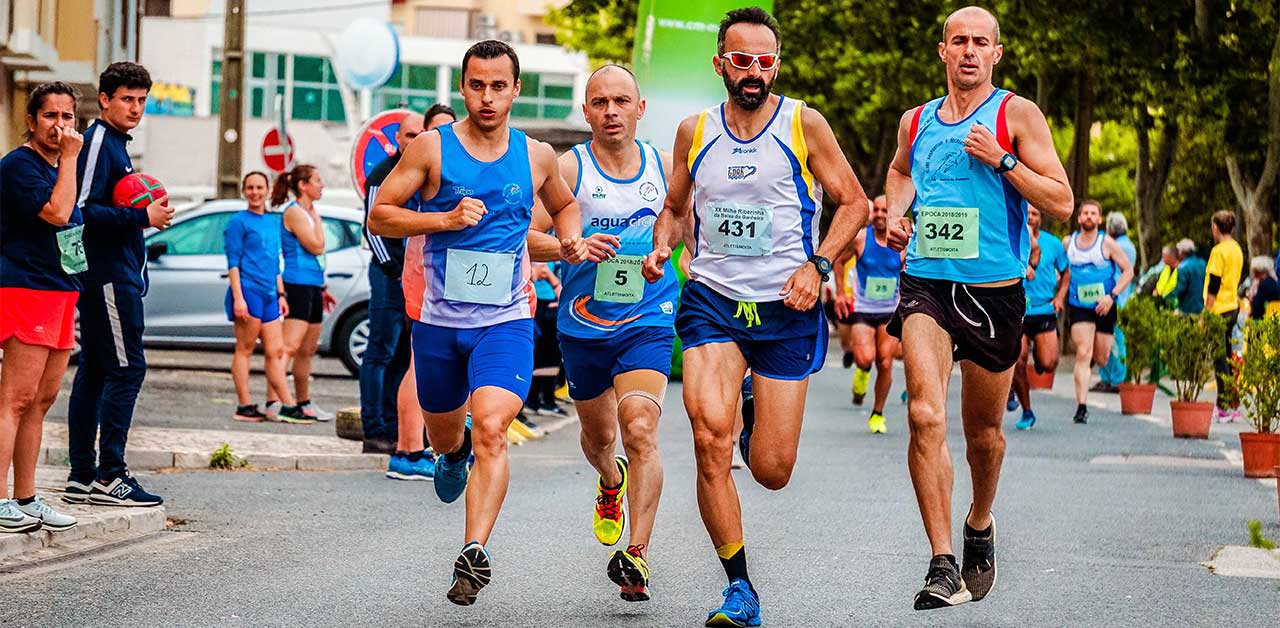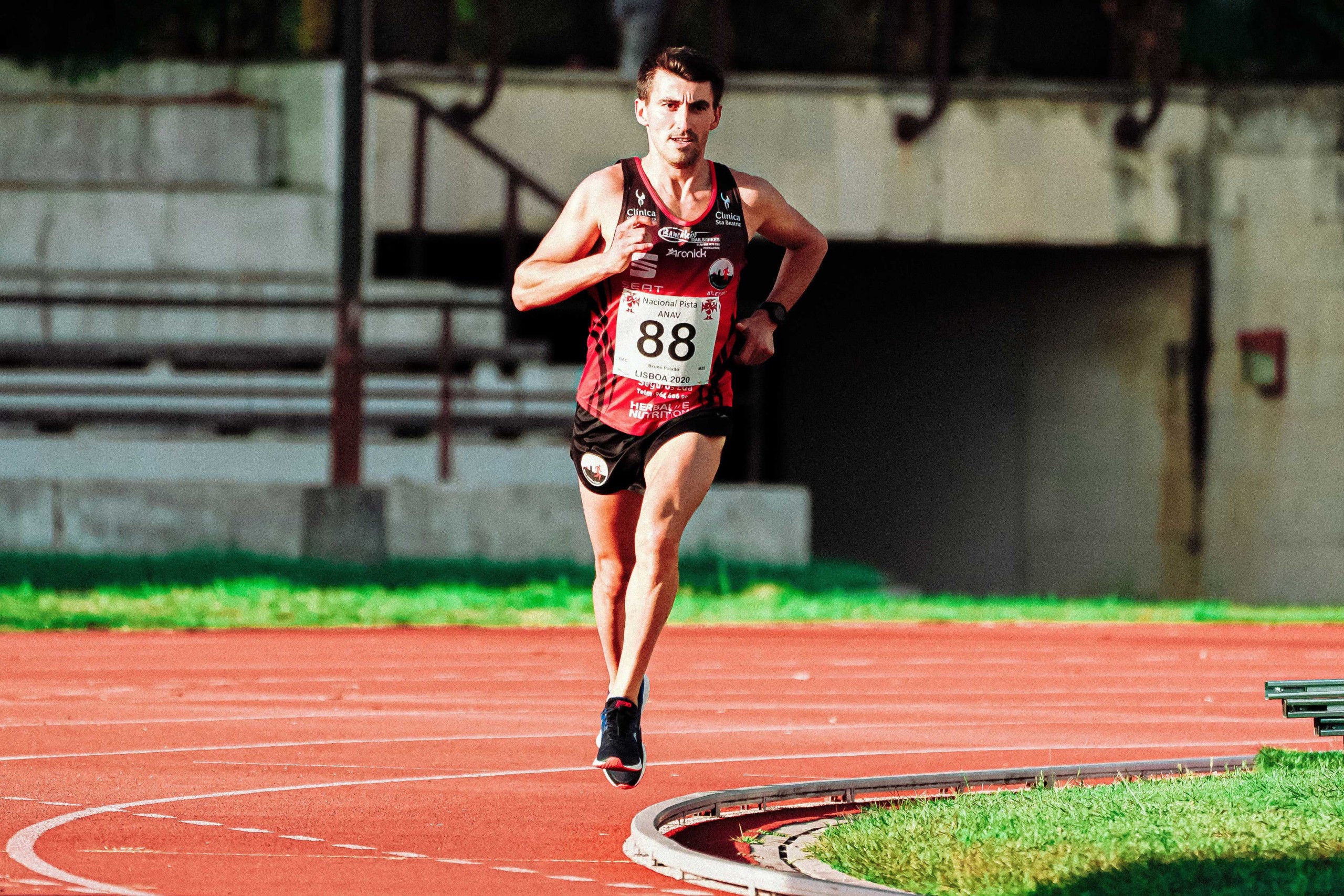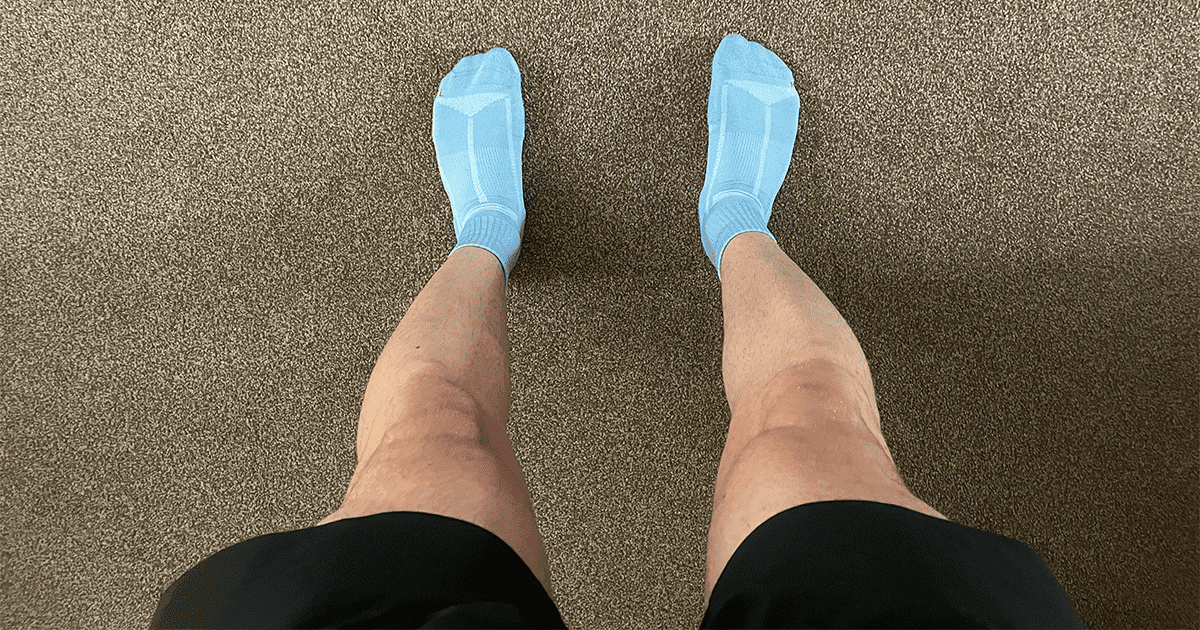How long does it take for a beginner to run 5k?
Tips on how to improve your 5k time as a beginner and how long it takes the average person to run a 5k.

Running is a universal sport, easily accessible to a wide percentage of people, requiring little to no equipment, and offering several physical and mental benefits. For example, those who run regularly will benefit from:
- Improved mental health
- Happiness
- Reduced risk of certain cancers
- Stronger bones
- Improved heart health
- Increased life expectancy
- Improved quality of sleep
- Weight management
- And more!
These are just a handful of some of the benefits available. Whether you started running for health reasons or the enjoyment of the sport, it likely won’t take you long until you’re hooked on parkrun or attempting your first 5km run or race.
Once you’re hooked, you’ll likely ask yourself the following question: how long does it take to run 5k? The answer is different depending on various factors, including your age, running experience, and gender. This article will answer this question, but first, will provide you with a few useful beginner running tips.
Beginner running tips

As a beginner, you’ll be pleased to know that you’ll make quick progress in becoming both faster and being able to run further. There are numerous things you can do to fast track your progress, these include:
- Following a training plan (such as the couch to 5k program)
- Remaining consistent with your training
- Allowing yourself plenty of time to rest
- Not overtraining
The number one mistake we see beginners make is training too much, especially at the beginning of their running journey. Your body can only recover so fast – it needs days off to recover and come back stronger. This is what allows you to become a better runner – you must listen to your body, whether you’re a complete noobie or veteran.
Furthermore, if you’re unsure where to start, we highly recommend following a training program. The couch to 5k training plan by the NHS is free and detailed, taking you on a nine-week journey to completing your first 5k.
Related: How to run faster and improve your race times.
What is the average time to run a 5k?

The average time to run a 5k is anywhere between 25 and 40 minutes. For walkers, this is around the 1-hour mark. If you’re not quite there yet, or can’t complete the 5km distance, don’t worry.
There are plenty of things you can do to run faster, some of which we’ve already mentioned in the previous section. Some runners will finish in under 25-minutes and some slightly over 40, but this is likely a result of weeks and months, if not years of extensive and consistent training. Don’t feel disheartened, if you stick to your training plan, but most importantly remain consistent with your running, you will likely see similar results.
Related: How to become a better runner: 10 tips for beginners.
How to improve your 5k time as a beginner

Now that you know what time to aim for, you may be looking for tips on how to become a faster runner, aside from those we’ve already discussed. To start with, there a few things you can do on the day for improved performance. These include:
- Warming up before your run
- Performing strides before your run
- Ensuring you’re well-hydrated and rested
Warming up before a 5k attempt not only reduces your risk of injury, but increases blood flow to the muscles, allowing you to run faster. Think of it like starting a car during the winter – you wouldn’t rev a cold engine so don’t do the same to your body.
Moreover, alongside following a training plan and allowing yourself plenty of rest, to run a faster 5k you can also:
- Perform regular interval training
- Increase your number of runs per week
- Track your progress and aim to improve each session
As a beginner, you don’t want to perform too much interval training as this too, will increase your risk of injury. However, the occasional session will develop both muscular and aerobic strength, sending you on your way to achieving that personal best.
If you’re currently running once or twice a week, consider increasing this to three times, four at a push. Ensure you receive plenty of rest and listen to your body: if you feel too sore to run one day, perhaps it’s best to take an additional rest day.
Finally, ensure to track your progress and aim to improve each session. For example, you can use apps such as Strava to record and monitor your runs, later looking back at your sessions and seeing what worked for you, and what didn’t. Leave notes on weather conditions, how you felt before, during, and after your run, and any other important information that you can use in the future.
How often should you run 5k?
As a beginner, you should slowly increase your weekly mileage. If you’re comfortable running 5k easily, you can run this multiple times a week. However, if you’re looking to improve, which let’s face it, we all are, then we recommend including some interval training into your schedule.
Nonetheless, to answer the question if you can already run 5k, you can run a minimum of 5k for each run three to four times a week with little risk of picking up an injury.
To conclude
The average time to run a 5k is anywhere between 25 and 40 minutes. However, other factors can influence this, including your running experience, age, and gender. There are plenty of ways to become a faster runner if you’re looking to improve your 5k best, some of which have been discussed in this article.
Be patient and remain consistent with your training and you too, will see an improved in your 5k personal best, shaving seconds, if not minutes off of your time.
Related: 11 Tips to help you beat your parkrun personal best.

Matthew is a lifelong runner, chief tester of all products, the founder of Running101, and freelance content writer for active brands. When he’s not writing, he enjoys lifting weights, cycling in the Lake District, and watching fast cars drive in circles on a Sunday. He also has a BA in sport, exercise and physical activity from the University of Durham.




